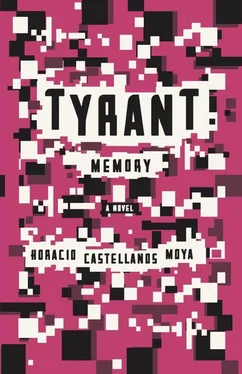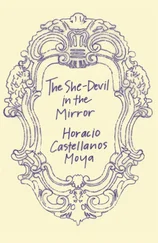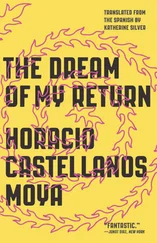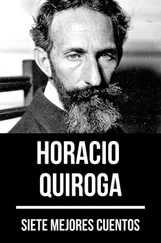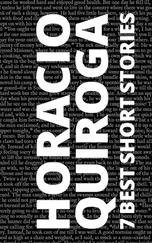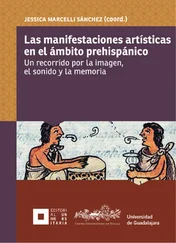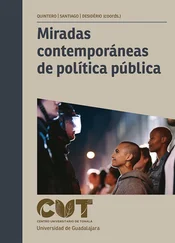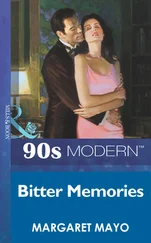Before it got dark, Don Leo drove us to my house to pick up some clothes so we could spend the night here, and to lock up all the doors and windows, in case any robbers thought to take advantage of the chaos; I put my diary and my rosary in my overnight bag; I left a note on the table in case Betito or Pericles showed up. María Elena helped her Aunt Juani prepare dinner; Juani has been working for Mother for twenty-five years, and the poor thing suffers terribly from varicose veins. After dinner I spent some time in the kitchen where the servants eat: María Elena was talking about how, when the coup began, she was going for the third time to see the movie Flor Silvestre , with Dolores del Río and Pedro Armendáriz, in which a poor young peasant girl marries the son of a rich landowner, but now she’ll never be able to see it again because the movie surely burned up in the Teatro Colón. It was so touching to hear her. I returned to the living room; Mother suggested we pray a rosary. But just then the phone rang: it was Clemen. I asked him if he was alright, if he knew anything about his father; I told him about my futile efforts to get to the Central Prison. He told me right now all efforts were focused on the assault on the Black Palace, where the general has taken refuge, first the beast must be finished off in his lair then there would be time to go to the Central Prison; he said he was spending the night guarding the station, and if he heard anything about his father he would call me immediately. I asked him what was going on there. He told me not to worry, they would level the Black Palace at the latest tomorrow, he said everything would have been easier if that idiot Lieutenant Mancía had captured the general on the highway to the port, which was the plan, but he had slipped out of their hands, in disguise and in a private automobile, the sneaky devil. Clemen spoke excitedly, his voice hoarser than usual; I assumed he’d been drinking whiskey and smoking for many hours. I wanted to ask him about my father-in-law, but we got cut off.
After praying the rosary, well-nigh unable to give it my full attention because of all the emotions churning inside me, I went to my bedroom. Now that it is night, the planes have stopped dropping bombs, the heavy artillery fire has also stopped, though from time to time and with certain regularity, there are flurries. Dr. Romero, who has been proclaimed the civilian leader of the coup, announced on the radio that the forces opposing the general will cease their attacks during the night to avoid innocent casualties; he made an appeal to the population to join the democratic movement; he confirmed that General Marroquín and Colonel Tito Calvo are leading the military rebellion; they are half brothers, and dislike my husband. Then the transmission ended.
I’m going to lie down for a while, just to rest, I’m so distressed I don’t think I’ll be able to sleep; I want to believe everything will turn out well, that the general will be defeated, and Pericles will be freed any moment, but at the same time I fear the worst — I have terrible premonitions.
(Midnight)
Father arrived a little before ten. I had already fallen asleep; the noise in the living room woke me up. He arrived with friends. Soon I got out of bed and was listening to their reports about the latest events. Father heard about the coup while he was still at the finca; he was taking a siesta when Don Toño, the foreman, woke him up to tell him what he was hearing on the radio. He went immediately to the coffee-processing plant and the other warehouses to make sure everything was in order and to warn the security guards to remain very vigilant, there has been a coup d’état, and criminal elements would take advantage of the anarchy. Then he went to Santa Ana, to my sister Cecilia’s house, where he met with his coffee-growing colleagues to find out who was leading the movement and figure out how to lend them support; the local military detachment has joined the uprising, according to Father. Then he decided to return to San Salvador. Some of the men warned him it would be better to remain where they were for the night, it was already getting dark and the roads would be dangerous. But Father is stubborn, and once he makes a decision nobody can get him to change his mind. He said he’d had no problems leaving Santa Ana, but when he got to San Juan Opico he encountered the first checkpoint, then another as they approached Santa Tecla, and lastly entering the capital; at each checkpoint it took him a long time to convince the soldiers to let him pass. It’s obvious Father had been aware of the possibility of a coup but knew nothing about the details or the exact date; he’s vexed they didn’t inform him. He was quite enthusiastic about Clemen’s participation in the seizure of the radio station. “Finally, he’s decided to do something worthwhile,” he said. Mother does not share his opinion, she thinks it imprudent to expose oneself so openly; she said that if the coup fails, there will be weeping and gnashing of teeth. Father asked me if Captain Ríos Aragón, who’d been mentioned as the commander of the troops that had taken over Ilopango Airport, is Jimmy, Clemen’s cousin; I said, yes, he is, he’s the eldest son of Angelita, Pericles’s first cousin.
Juan White, Güicho Sol, and my Uncle Charlie were quite frantic, pacing around the room, whiskey glasses always in hand, complaining about how useless the military is, wondering how they could possibly have let the general slip out of their hands, and the pilots were even worse, instead of bombing the Black Palace, they dropped the bombs two blocks away, destroying the Teatro Colón and all the shops in the vicinity. Mother piped up and asked if the Casino had also been destroyed; they told her it hadn’t been; fortunately, it was untouched. Güicho said it seems the leaders of the coup don’t really want to carry out the assault but instead only scare the general, as if they could possibly win like that, only the faint of heart would be foolish enough to suspend the assault at night, when they should be delivering the coup de grâce to the Black Palace and finishing that Nazi warlock off once and for all. Güicho said he doesn’t trust General Marroquín, the commander of the First Infantry Regiment, which is leading the charge on the palace. Then I thought about why General Marroquín might have called Pericles on Friday night: why would he have wanted to contact him when it’s common knowledge my husband is in jail? Father wondered to what extent the American Embassy supports the coup. Güicho said he had spent some time that afternoon with the ambassador, and there would be no support or any statement of support until the outcome became known. Juan is livid because he hoped the American troops would come to the support of the rebels. After drinking another couple of shots of whiskey, Juan and Güicho left. Only then did Father ask me if I had been able to speak to my father-in-law; I told him I hadn’t, the telephone lines to Cojutepeque are out, but undoubtedly the colonel is beside himself because of Clemen’s participation in the coup. I expressed my anxiety about Pericles’s situation. He told me that we should immediately mobilize all our contacts to get him released, taking advantage of the opportunity, now that the general is under siege and on the verge of being overthrown. But he couldn’t get in touch with either Chaquetilla Calderón or Judge Molina, president of the Supreme Court, or Don Agustín Alfaro, the director of the coffee-growers’ association, who they say is inside the garrison of the First Regiment with the rebels. He told me he can’t understand why Clemen hasn’t persuaded any officers to go with a contingent of troops to the Central Prison to liberate his father and the rest of the political prisoners.
Читать дальше
